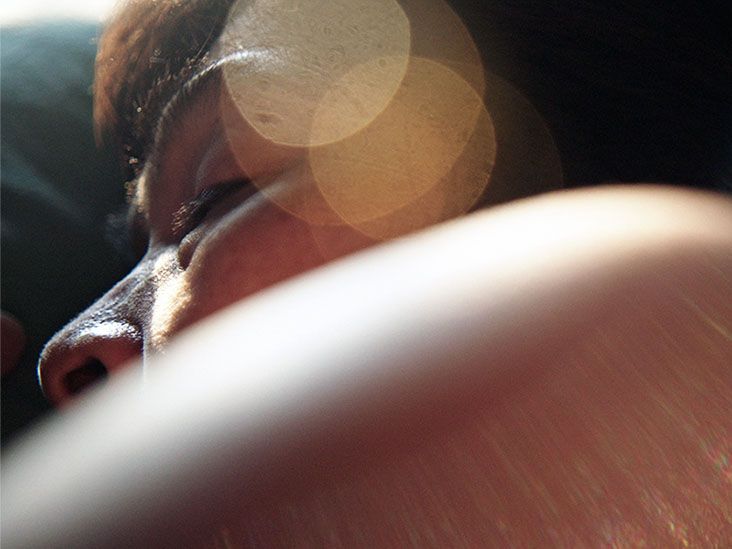Vocal nodules are growths that form on the vocal folds due to overuse. They can cause a hoarse or raspy voice and affect a person’s ability to sing. Treatment often involves vocal rest and vocal therapy.
When a person talks or sings, they are able to produce a noise due to the vibrations of the vocal folds (vocal cords). This occurs when air from the lungs blows against the vocal folds, causing them to vibrate.
The vocal folds can come together hundreds of times per second when talking. This can add up to millions of times per day if a person uses their voice a lot. If a person does not rest their voice often, they may experience a vocal injury.
Vocal nodules are small growths that can appear on the vocal folds from misuse or overuse. They can cause throat pain and affect a person’s voice. To treat them, it is advisable to rest the voice and allow the vocal folds to recover.

Vocal nodules refer to growths that can form on the vocal cords. These small bumps are noncancerous and form on the edges of the vocal cords, which are present in the voice box.
They occur due to repeated trauma of the vocal folds and develop where the vocal cords come together with the greatest force. This is often due to straining or overusing the voice. Vocal nodules are comparable to calluses that can form on the hands.
Initially, a vocal nodule may start as a soft growth. However, without suitable treatment, it may begin to produce fibrous scar tissue and become a hard nodule, which is more difficult to treat.
People may refer to vocal nodules as “singer’s nodules,” as they are more common in individuals who regularly sing.
Vs. vocal polyps
Vocal polyps are another type of benign growth that can form on the vocal folds. However, polyps are typically larger than nodules and can appear on just one vocal fold, while nodules usually form on both folds. Some health experts may differentiate them by thinking of a nodule as a callous and polyps as a blister.
The
Common causes can include:
- misuse of the voice when singing or speaking
- persistent screaming
- shouting
- chronic coughing
Other possible factors that can affect the vocal folds include:
- allergies
- smoking
- tense muscles
- drinking caffeine and alcohol, which dries out the throat and vocal folds
Vocal nodules interfere with the movements of the vocal cords. This prevents them from being able to vibrate and come together properly. A person may also experience the sensation of having something in their throat. As such, the most common symptom of vocal nodules is a hoarse or raspy voice.
Other symptoms can include:
- breathiness
- a harsh-sounding voice
- shooting pain from ear to ear
- neck pain
- voice and body tiredness
Additionally, people
It is advisable to contact a doctor if a person has experienced symptoms of vocal nodules, such as a hoarse voice, for more than 2 to 3 weeks.
A doctor who specializes in vocal problems, such as an otolaryngologist, will initially ask about activities that can strain the voice. They will then
This will usually involve a laryngoscopy. This is a thin tube that allow a doctor to see the throat. They may also use a stroboscope. This is a device with a flashing light that enables the doctor to take a close look at the vocal folds and see how they vibrate. While using these devices, the doctor may ask the person to talk at different pitches so they can see how the vocal cords move.
Vocal nodules will
Voice therapy involves working with a speech-language pathologist (SLP) and learning how to care for the voice. Also known as
If a person does not receive treatment, the growth may develop into a hard nodule. These nodules are typically larger, white in color, and more solid. They also do not respond as well to voice therapy and may require surgery. This involves surgically removing the nodules. After removal, it is essential to look after the voice to prevent nodules returning.
To
A person can follow voice therapy guidelines to help prevent any long-term voice problems. As well as protecting the voice, these techniques may also help make the voice stronger and more resilient.
A doctor will also advise addressing any medical causes of vocal nodules. These may include:
Vocal nodules describe noncancerous growths that can develop on the vocal folds. They occur commonly in singers and often result from overuse or misuse of the voice. Common symptoms include a hoarse or raspy voice.
A doctor can diagnose vocal nodules by examining the vocal folds. Treatment typically involves vocal rest and voice therapy. This describes learning how to properly care for the voice. If a person does not receive prompt treatment for vocal nodules, they may require surgery to remove them.


